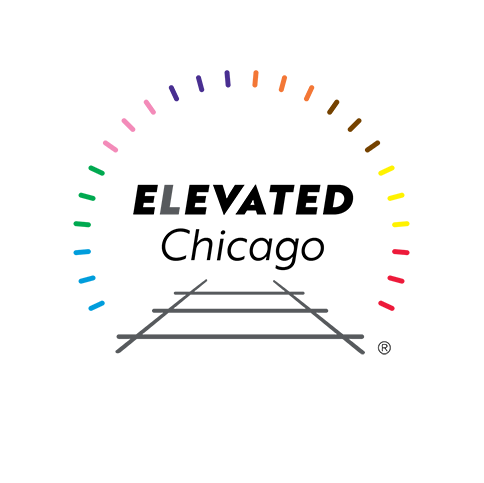In 2008, when Laurie Ouding moved to Chicago from Michigan, she was struck by the health disparities in communities across the city. As a North Lawndale resident and registered nurse at Rush Hospital, she saw those health disparities up close on the near West Side.
“I started noticing that the majority of my pediatric patients had some nutrition-related issues, whether it was access to food, malnourishment, or obesity with malnourishment,” she says.
Through her job and volunteer work with local farms, Ouding began to view those nutrition-related issues holistically. She began to see how those issues were connected to the lack of affordable housing, employment opportunities and education.
Through Elevated Chicago, Ouding has taken steps to address those issues.
Elevated Chicago’s technical and advisory processes help people address economic, health, transit and climate concerns within their communities. One Elevated initiative, Equitable Development Ambassadors (EDA), helped Ouding lay the groundwork for her community-based enterprise Food Matters, which is in its initial phase of development.
Food Matters will offer Bronzeville residents consistent access to healthy, affordable, locally grown foods year-round.
As a member of the inaugural EDA cohort in 2021, Ouding learned the financial basics of real estate as well as city processes required to bring her project into development.
Ouding says EDA was indispensable in helping her advance her plans. “It was invaluable to have that resource to say, ‘Here’s somebody that’s doing X, Y and Z in the neighborhood that you’re in,’ and connect them to that,” she says.
Ouding’s Food Matters obtained much-needed recognition in October 2021 when, for the first time, the City of Chicago, Elevated Chicago and Enterprise Community Partners awarded microgrants to 11 equitable transit-oriented developments (ETOD). The microgrants ranged from $7,500 and $15,000 (Food Matters received $15,000) and could be used for community engagement efforts or applied toward specific, equity-centered aspects of a project.
“The grant makes me feel like Food Matters is very validated,” Ouding says, excitedly describing what it feels like to be an ETOD pilot project grantee. “Other people can see the value and the good that we can do with this project.”
“It’s been refreshing to work with Laurie Ouding on Food Matters,” says Lyneir Richardson, CEO of The Chicago Trend Corporation, which is providing development support on the ETOD pilot. He says the benefits of EDA were evident in Ouding’s technical knowledge of brick-and-mortar development. “Laurie came to this pilot ready to have essential conversations with development partners, city officials and capital providers to move her project forward,” he adds. “Dedicated entrepreneurs like Laurie are key to the equitable urban renewal our cities need.”
In addition to its food offerings, she wants Food Matters to offer a community gathering space and provide jobs, culinary education and urban agriculture education.
“This is a right for everyone. Everyone deserves healthy, nutritious, affordable food.”
Currently undergoing its appraisal, survey and environmental study as part of its pre-development phase, Food Matters will be located at 435-447 East 43rd Street, near the CTA Green Line.




